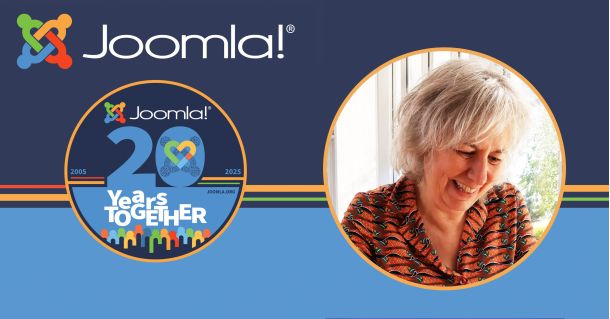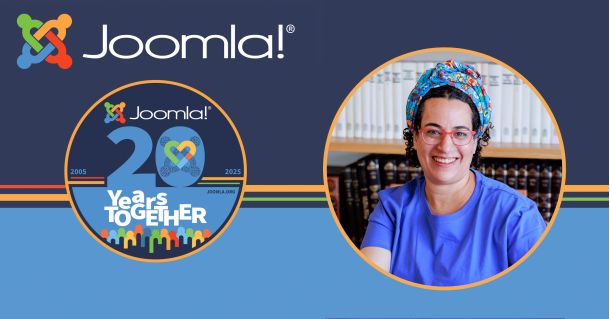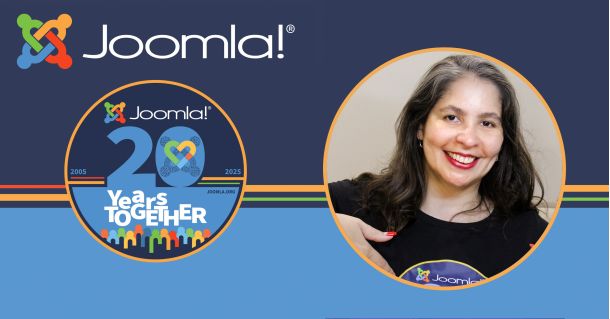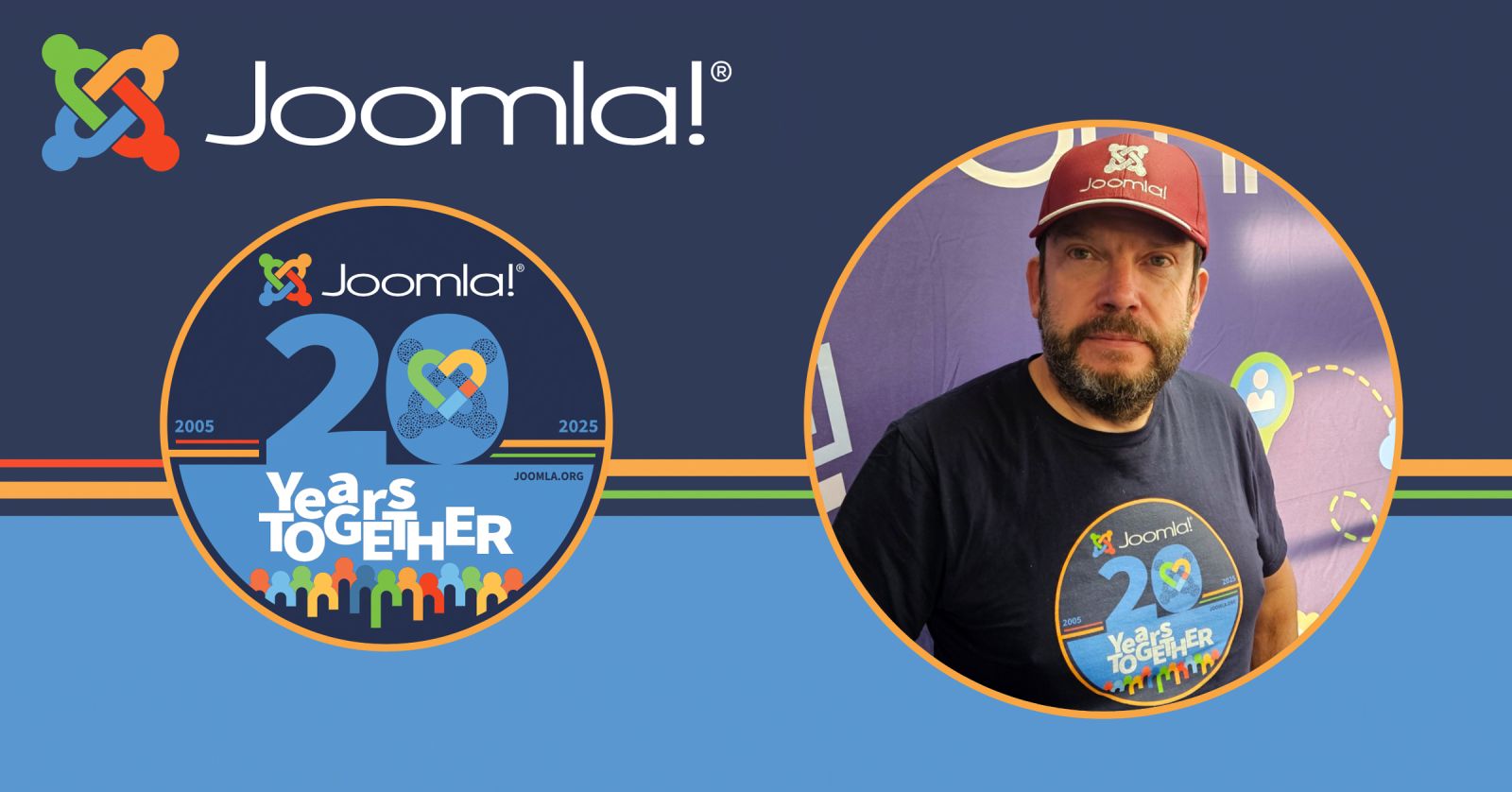
Joomla in Faces. Serge Billon (JCM team member)
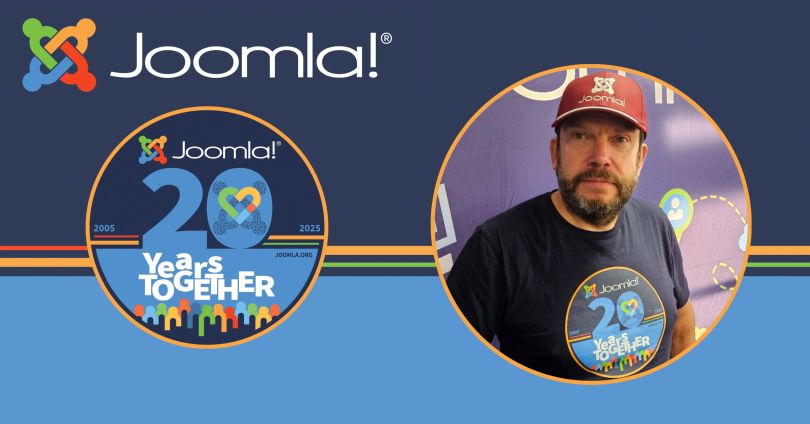
- Published: 10 November 2025
- Last modified: 07 January 2026


Serge Billon is a French web entrepreneur who has built his career with Joomla at the core. Specialising in website design, he also offers training, project management, and SEO services. An author for the Joomla Community Magazine, Serge bridges the gap between practical work and community education. He joins us to discuss his methods and the evolving Joomla landscape.
1. Please tell us a few words about yourself
Hello, My name is Serge Billon. My work revolves entirely around the web and Joomla. I am a freelancer working for my own company, web54. I live and work in Lorraine, between Metz and Nancy (France), in the heart of Europe.
On a personal level, I am married with two children who are students, and I have many passions that I unfortunately cannot list them all. (Cooking, DIY, reading, jazz, etc.). If I had to define myself, I would say that I am curious about everything and all cultures.
2. Your first encounter with Joomla: how did it happen?

I took the opportunity to consider changing careers and deepened my knowledge of Joomla, deciding to make it my main tool.
Serge
As an enthusiastic amateur, I have always been curious about the web. Self-taught, I created my first websites using HTML, then SPIP, Dotclear, Guppy, and Xoops.
In 2005, I came across Joomla, which had just been launched (I barely had time to load Mambo to see the difference), and something extraordinary happened: I fell in love! More precisely, I immediately understood the structure of the code, even though I had no formal training in this area.
In 2005 and 2006, my two children were born, and I chose to take parental leave to look after them. As I had three years ahead of me, I took the opportunity to consider changing careers and deepened my knowledge of Joomla, deciding to make it my main tool.
3. Have you worked with other Content Management Systems besides Joomla?
Yes, of course, if only to prove Joomla's potential!
I'm joking, but I use other CMSs out of necessity, because some clients already have a website that doesn't use Joomla, but when creating a new one, I only have one choice: Joomla!
4. Do you contribute to the Joomla community?
- I am a member of the board of the “Association Francophone des utilisateurs de Joomla” (AFUJ) IE: French-speaking Association of Joomla Users.
- I am a member of the Joomla Community Magazine team, and I write articles, including interviews to highlight Joomla users (a bit like you do here).
- I contribute to the joomla.fr forum.
- I administer two help forums: virtuemart.fr and aide-joomla.fr (but the forums are neglected by the public).
- I try to share explanatory tutorials on my website web54.fr, particularly on how template frameworks (Helix, Astroid, Gantry) work.
- I translate what I can, when I can.
5. Why do you do this / what motivates you / what do you get out of it?
From the outset, I made the decision to give back to the community as much as I could for what it had given me.
The reason for this is that someone helped and advised me enormously, and when I offered to pay them, they replied that the best thing I could do was to give back by helping others. I started by responding and helping on forums, then participating in JoomlaDays France, and finally offering to translate Hagen Graff's books into French for free. And for some time now, the international community has been contacting me to ask me to participate, which I have gladly accepted.
All this help never brought me any direct money, even if a certain amount of notoriety can bring in clients.
The main reward is when people stay with Joomla because of the community. I tell myself that I've done my job! Building loyalty and getting people involved is kind of my credo. It's almost an act of activism.
6. You actively write articles about Joomla in various media. In your opinion, what should be done to extend Joomla's presence beyond its own community and attract more users?
In fact, every Joomla user, whether amateur or professional, should understand the importance of sharing, do so with pride, and communicate in a coordinated manner. We all need each other, and solidarity should guide our actions.
But that is not enough.
We also need to promote all solutions, extensions, and developers without taboos about the fact that people make money with the tool.
This promotion should not be done in the traditional way, with blah blah blah that doesn't work, but by presenting solutions to problems.
For example, ‘How to install Joomla’ is not the answer people are looking for, but rather: ‘I want to create a website in a short amount of time, how do I do that?’
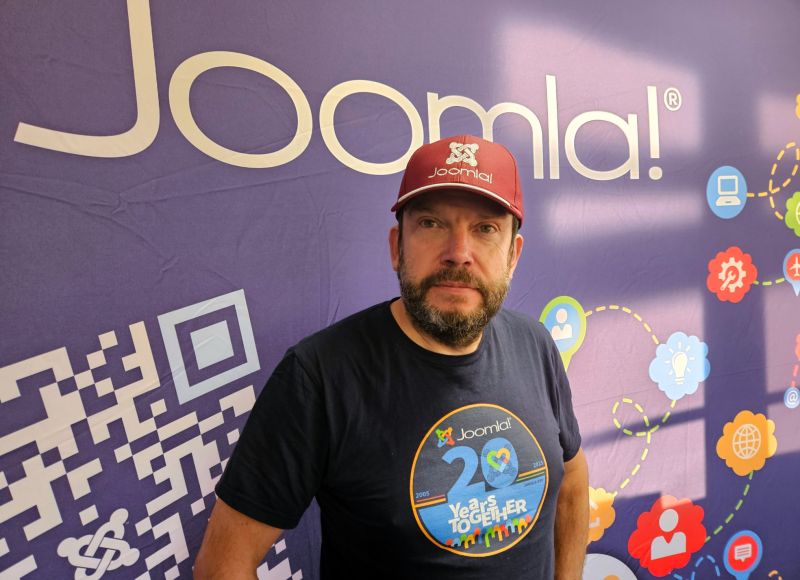
7. The French Joomla community is strong. Can you tell us a bit about it, please?
To be honest, the French community has been larger than it is now, but that's the case pretty much everywhere.
However, we are fortunate to have an association with members and a desire to bounce back as soon as the opportunity arises, and we believe in that.
Some developers are well known to the public and participate in Joomla, notably Cédric Keiflin from joomlack.fr (Template Creator, Page Builder CK), Yannick Gauthier from weeblr.com seo, 4sef), Cyril Reze (ICagenda), and I even can name Olivier Buisard (J2Commerce) who, even though he is an expatriate in the USA, does not hesitate to give his opinion and help French speakers. The forum is lively, with active and responsive moderators.
Many also participate in translations and PBFs (Pizza, Bugs & Fun).
You will also find many French speakers in the Joomla teams, such as the vice president: Emmanuel Lemor.
I cannot name everyone, and those I have forgotten will forgive me, but each in their own way contributes to the project, and I can only thank them.
In short, we are a lively, active community, and I have confidence in its ability.
8. What is the AFUJ association, and what is its mission?
It is a non-profit association founded in 2007 and recognised by Open Source Matters. Its main role is to bring together, represent and support the French-speaking Joomla community, including users, developers, integrators, agencies and trainers.
- Leads the Joomla community in France (forums, events, mutual assistance, JoomlaDays, etc.).
- Distributes resources and best practices for using and developing with Joomla.
- Represents French-speaking users in the international Joomla project.
- Contributes to the official translation of Joomla into French.
- Supports the promotion of the CMS and the professionalisation of web professionals using Joomla.
- President: Cyrille Poussin
- Treasurer: Yannick Gauthier
- Yann Gomiero
- Marc Dechèvre
- Philippe Pes
- Catherine Mollet
- Serge Billon
We organise events such as JoomlaDay France and act primarily as intermediaries between users and the various stakeholders.
9. I'm curious to know about the state of the eCommerce market in France. Which online payment systems are the most popular in e-shops, besides PayPal?
I don't know if I'm the best person to answer that, but based on my own experience:
In France, eCommerce is dominated by platforms, and companies with their own websites favour Woo Commerce and PrestaShop as the market-leading CMS.
The competition is tough against the giants of online sales, and sellers are often forced to sell on marketplaces.
For payment methods, there are still banking platforms (formerly Atos/Ingenico) such as Worldline, Lyra, Monext, Monetico and solutions such as Paybox and Stripe.
10. What key advantages of Joomla would you highlight?

I often say that with Joomla, you can do anything. What I emphasise to my clients is its modularity.
Serge
I often say that with Joomla, you can do anything. What I emphasise to my clients is its modularity.
The arrival of custom fields has opened up new possibilities, and with a good knowledge of the tools available, the only limit is your imagination.
11. What do you think needs to be improved in Joomla's infrastructure to make it even better?
On a technical level, I would like to be able to create different types of content and make it easier to manage category/article layouts.
The native layout of custom fields and, more generally, all the fields available in each view currently requires a high level of technical knowledge. A mini layout manager could improve this.
This is just one idea among many.
Speaking of ideas: a suggestion (online) box encouraging users to participate in new features would also be a great initiative.
12. Joomla is turning 20. What are your thoughts on this milestone?
Who would have thought that twenty years ago? I invite anyone who is critical of the fantastic work done by the Joomla team to install version 1.0 to see how far we've come.
We have a tremendous and unrivalled tool, so let's make the most of it!
Thank you for initiating these interviews, and let us all maintain this fabulous bond that connects us: Joomla.



